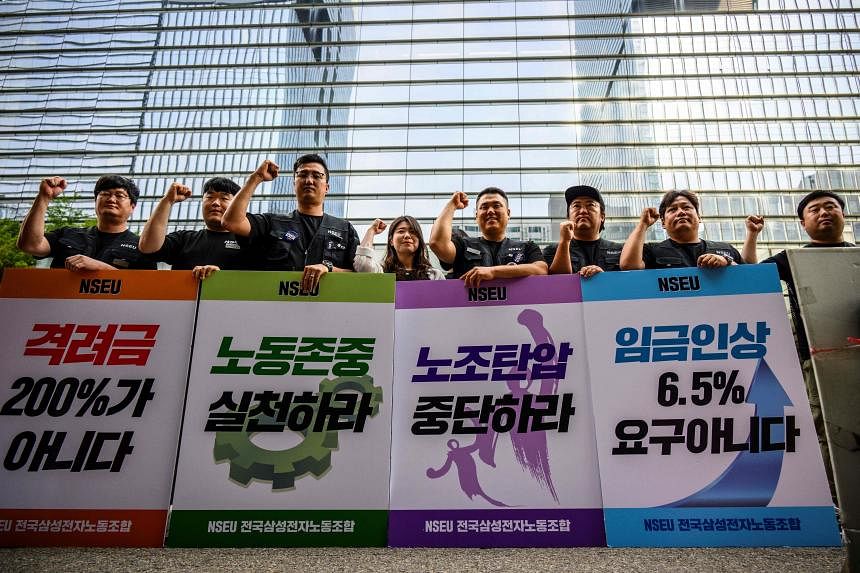Samsung workers’ union in South Korea starts three-day strike

SEOUL: A union at Samsung Electronics in South Korea is planning a three-day strike starting July 8 and has threatened that it may take further action against the country’s most powerful conglomerate at a later date.
The National Samsung Electronics Union (NSEU), whose approximately 28,000 members make up more than a fifth of the group’s workforce in South Korea, is demanding that the company improve its performance-related bonus system and grant workers an additional day of vacation.
It is not immediately clear how many workers will join the strike, but the union’s poll showed that as of the morning of July 8, about 8,100 members said they would join the strike.
Leading union leader Lee Hyun-kuk said in a YouTube post last week that if workers’ demands are not heard, there could be another wave of strikes after the end of the three-day work stoppage.
The union plans to hold a rally on the morning of July 8 near Samsung’s headquarters in Hwaseong, south of Seoul.
However, analysts believe that the strike will not have a major impact on chip production, as production at the world’s largest memory chip manufacturer is largely automated.
In June, the union staged a strike using annual leave, its first industrial action of its kind, but the company said at the time that it had had no impact on production or operations.
While it will have little impact on production, the union drive reflects declining employee loyalty at one of the world’s largest chip and smartphone makers, analysts say. This poses another problem for Samsung as it struggles to navigate tough competition in chips for artificial intelligence applications.
Samsung estimated on July 5 that its operating profit would increase more than 15 times in the second quarter as the recovery in semiconductor prices driven by the AI boom lifted profits from low levels a year ago. However, its share price performance is lagging that of South Korean chip giant SK Hynix. REUTERS



